Job References
For 6 months in 1920, CHTL was in his own words the 'Competent Military Authority with Control of the Royal Irish Constabulary in the S.E. Portion of Ireland’ (application for Chief Constable of Nottingham 13th November, 1922) and with this experience applied for the job of Chief Constable of East Sussex. He didn’t want to stay in the army, least of all stay in the army in Ireland and the longing to settle down with his wife, Poppy, was greater than ever especially with the added impetus of his long awaited off-spring. There were probably many men in the army who hadn’t much desire to stay in the profession and who were totally war weary and carrying deep scars from the mental, emotional and physical impact of the Great War.
The Clerk to the standing joint committee
Sir
I have the honour to forward this my application for the appointment of Chief Constable of East Sussex.
I was 41 years of age last March. My police experience is:–
1. I am at present competent military Authority for the counties of Waterford, Wexford, Kilkenny, S. Riding of Tipperary, and a portion of the County of Cork. The Royal Irish Constabulary in this area are under my immediate control, and I am consequently in the closest touch with all ranks of the force.
2. In 1911 & 1912, in view of obtaining a position as chief constable, I attended the office Of the Chief Constable of Berkshire, and also worked with the Inspector responsible for the administration of the ”Diseases of animals”, “Weights and measures” and the “Food and drugs” acts
3. For 2 years I was inspector in the Sudan Civil Administration, and for four months acted as Governor of the Red Sea Province. During this period I commanded the police in the province and was responsible for the collection of taxes, issues of licenses etc.
I attach full particulars of my service, and also three testimonials.
I have the honour to be
Sir
your obedient servant
CH Tindall Lucas (Brig Gen)
(Com dg Fermoy Brigade)
CHTL was able to draw on references from those in high places but even these, as glowing as they were, failed to get him the job. However they do give an insight into CHTL’s character and what kind of man the IRA were about to encounter.
Lt General Shaw
Sir Frederick Charles Shaw KCB, PC (1861–1942) was a British Army general who served in the Boer War and the First World War. After the war he became Commander-in-Chief in Ireland. He retired in 1920.
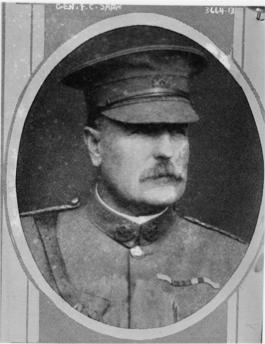
I knew Brigadier General C.T. Lucas as a Brigade Major in the 29th Division which he accompanied to Gallipoli – In that capacity he was exceptionally efficient. He possesses a great and varied knowledge of his profession – is full of resource and initiative & most tactful in his dealing both with his subordinates & those over him.
He is now serving under me in Ireland in command of the Fermoy sub district When he came out the difficult duties which fall to his (?) lot of military Commander most successfully. Brig General Lucas is in my opinion one of the best of the younger men in the British Army & if he remains in the Service he should go far.-
I can imagine no one more likely to promote the efficiency of the East-Sussex Constabulary if he should be selected to fill the post of Chief Constable, for which I very strongly recommend him.
F Shaw Lt General
Lieutenant General
Com in Chief Ireland
General Horne
General Henry Sinclair Horne, 1st Baron Horne GCB,KCMG (19 February 1861 – 14 August 1929) was a military officer in the British Army, ‘most notable for his generalship’ during World War I.
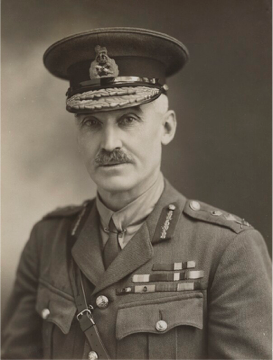
I can recommend Brigadier-General Tindall Lucas for the appointment of Chief Constable, East Sussex, with entire confidence.
The fact that he worked his way up from Company Commander in 1914 to Divisional Commander in 1918 speaks for itself. I may add, however, that the 4th Division – commanded by Temporary Major- General Lucas – formed part of my army in the advance on Valenciennes and Mons in the autumn of 1918, and that therefore I had every opportunity of forming an opinion of him. He proved himself a fine leader of men. He is strong, determined and tactful, possessed of a good personality and is popular.
I consider that he is well fitted for the appointment of Chief Constable and his eminent services throughout the war give him the strongest claim to consideration.
Horne General
Lieut General Sir W.R. Marshall
Lieut General Sir W.R. Marshall, G.O.M.G., K.C.B., K.C.E. General Officer Commanding, southern Command India (late Commander-in-Chief in Mesopotamia).
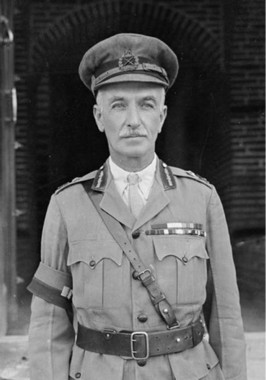
TO the Joint standing Committee.
Sirs,
It was my good fortune, when in command of the 87th. Brigade (29th Division) to have as my Brigade Major, Brevet Major (now Brigadier General) C.H. Tindall Lucas.
During the early days on the Gallipoli Peninsula when things were looking the reverse of rosy, both the Brigade and myself owed much to Major Lucas.
Of his work as a Staff officer I cannot speak too highly, but it was above all his personality which was so valuable – determined, cheerful and tactful, he inspired confidence wherever he went.
When I, unfortunately had to relinquish command, and the question of my successor arose, the choice fell on Major Lucas, and that without a dissentient voice, though there were many officers senior to him serving with the brigade.
I mention this (probably an unique instance of a Brigade Major succeeding to the command of a Brigade) as showing the degree of confidence placed in Major Lucas by his seniors and juniors alike.
I can imagine no Officer better qualified for a position requiring, firmness, tact and ability.
Yours faithfully,
(signed) W.R. MARSHALL, Lieut. General.
The man who got the East Sussex job was an ex military man. He’d made the smart choice of leaving the army in 1918 and taking the job of Assistant Chief Constable of Lancashire. He had a recent track record in English policing and it was obvious that his chosen career was in the force.
Lt. Col George Ormerod DSO was appointed as Chief Constable of the East Sussex.
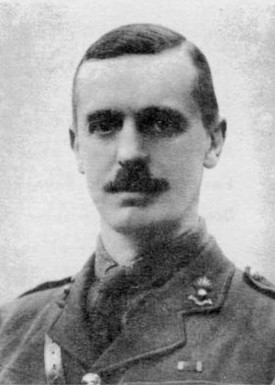
George Milner Ormerod was born in Marylebone, Middlesex, the son of Joseph Arderne Ormerod and Mary Ellen (née Milner).He is shown living at 25 Upper Wimpole St, St Marylebone, London, Middlesex, at the time of the 1881 Census. During the First World War George Milner Ormerod is shown as serving with 148 Brigade, Royal Field Artillery, attached to M.I.5 at the War Office. The First World War Medal Rolls show that George was entitled to the British War Medal, Victory Medal and 1914/15 Star. George was awarded the Distinguished Service Order in 1917. He later became Assistant Chief Constable of Lancashire 1918-20, and Chief Constable of East Sussex from 1920. He was educated at Rugby, and Queen's College, Oxford. Source
CHTL probably also applied for the Brighton Chief Constable job that was also open for applicants around the same time. The man who pipped CHTL to this post was Charles Griffin, who was appointed Chief Constable on 5th June 1920. He was the man who famously ‘quelled the Luton Riot’. Given the bitter after taste of the Luton Peace Celebrations, Charles Griffin regarded as a hero by a few, was seen as the man who supported the hated Mayor by the many discontents amongst the ex-service men of Luton.
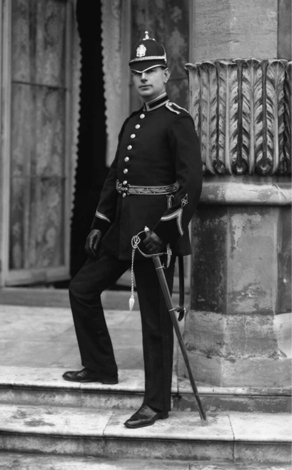
At the end of the Great War many towns and cities held lavish Peace celebrations. These didn’t always include the returning soldiers. In Luton in July 1919 the thought of the mayor and his cronies enjoying a slap up celebration at the expense of and the exclusion of many ex-service men turned bitterness into action. Ex-soldiers all around the country were suffering from unemployment, poor housing and high food prices. The parade on a miserable rainy day was hijacked by former soldiers, many of whom were maimed or disabled and unemployed, who hung a banner across the road: `Don’t pity us, give us work'. As the official procession went past, it was joined by the angry ex-servicemen. Eventually they arrived outside the Town Hall where they halted in heavy rain whilst the Mayor read out the proclamation of peace. By now the Mayor was the most unpopular man in town and his rating declined even further as thousands of old soldiers booed and catcalled his patronising speech. Sensing the increasing hostility one councillor called for three cheers for ex-servicemen. This only gave rise to even greater howls of derision. By now the noise was deafening.
Suddenly the crowd surged forwards, causing the Mayor and his entourage to beat an undignified retreat into the Town Hall. The crowd swiftly swept aside two constables. Willing hands tore down the doors and the people entered just in time to see some of the mayoral party disappearing through a rear entrance. Once inside, untold damage was done. Decorations for the Grand Ball were torn down. The contents of the Town Hall were hurled through the windows into the street.
The anger of the mob was infectious and soon a full-scale riot broke out with crowds venting so many negative pent up emotions out on the business’ and town which they felt had rejected them and let them down. The mayor made a hasty retreat in fear of his life and the poor police force were completely over whelmed.
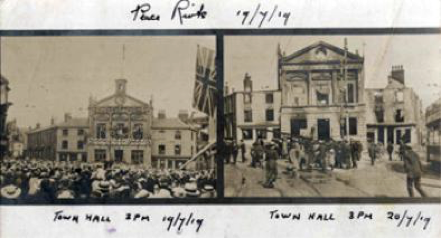
The black humour of the trenches resurfaced after one rioter was hurled through the window of a music shop by the force of the fire brigade’s water hose:
"The crowd that went in to rescue him emerged with three pianos. These were dragged into the roadway and used as accompaniments. The crowd sang ‘Keep the Home Fires Burning’ before the biggest bonfire that Luton had ever seen. The burning down of the Town Hall provided the perfect culmination to what had started as a very wet day’… The ‘restoration of law and order’ led to several arrests. Because the authorities were fearful of further repercussions the judge handed out surprisingly light sentences. He even said there had been ‘some provocation’." Source
The lyrics of ‘Keep the Home Fires Burning’ have a special poignancy when one realises that this was just the betrayal that the returning soldiers felt. Their ‘home fires’ had been extinguished by the grinding poverty and lack of opportunity that they returned to.
Keep the Home Fires Burning,
While your hearts are yearning.
Though your lads are far away
They dream of home.
There's a silver lining
Through the dark clouds shining,
Turn the dark cloud inside out
Till the boys come home.
Overseas there came a pleading,
"Help a nation in distress."
And we gave our glorious laddies—
Honour made us do no less,
For no gallant son of Freedom
To a tyrant's yoke should bend,
And a noble heart must answer
To the sacred call of "Friend”.
A move to the more sedate Sussex countryside for Charles Griffin was ‘just what the doctor ordered’. The committee appointing the new Chief Constable must have favoured a tried and tested policeman, an inspector and chief clerk, over an ex-military man, however good his references which one must remember were from military men, not civilians like themselves. There was a certain prejudice against ex-military men at that time. A ‘them and us’ mentality had split communities; with those who stayed behind and those who went to the Front having had experiences that were poles apart. Neither side could fully appreciate what the other side had been through. There were resentments and feelings of guilt.
On the 1st March 1919 there had been riots by disgruntled Canadian troops awaiting repatriation at Kimnel Park in North Wales. There was a general uneasiness and dissatisfaction with life after the Great War and the idea of rioting as a form of protest was not that unusual in Britain at that time. Riots by serving British soldiers in Fermoy in Ireland were to follow in September 1919 and in June of 1920 when a certain general went missing.
The men returning from the Front found it difficult to settle down into civilian life. They would never again be the men they were when they left ‘Dear old Blighty’ to fight for King and Country. They had kept their pecker up thinking about home and, as is the way, they romanticised their memories of home allowing their imaginations to paint an idyllic scene in their minds. Coming home to a harsh reality where there were shortages of food and jobs, children who didn’t recognise them, wives who found them distant and troubled, and civilians who resented their expectations of being treated as home-coming heroes, drained the colour out of their rose-coloured memories and left things cold and grey. Often a non-military man who had a proven track record throughout the war years was preferred to a battle-scarred veteran when it came to selecting men for jobs.
Charles Griffin proved himself a good choice for Chief Constable if only for the innovations he brought to the Sussex force, such as a police-box system and road traffic signals in Brighton. He also introduced "miniature wireless sets for the breast pockets of Brighton policemen and earphones concealed in their helmets.’' (The Straits Times, 29 July 1933, Page 9)
In later life CHTL’s notoriously bad driving would lead him to encounter the boys in blue from the wrong side of the law although he merely experienced the odd ‘slap on the wrist’!
CHTL was very disappointed by his failure to leave the army and Ireland and to settle down with Poppy and his longed for heir who he nicknamed "Cutlett''. He'd had enough of the troubles in Ireland but before he could find another way to leave the army things started to hot up further. There were strong elements in the British parliament who were against any form of 'Home Rule' in Ireland and they wanted a heavy-handed crack down on any republican elements that posed a threat to their vision of Ireland as the emerald in the British Emperor's crown. The posting of Smyth, whose allegiance was to the unionist cause, to take charge in the province of Munster*, was a reflection of this.
*Ireland was divided into 4 different provinces, or territorial divisions: Leinster, Munster, Connacht & Ulster
